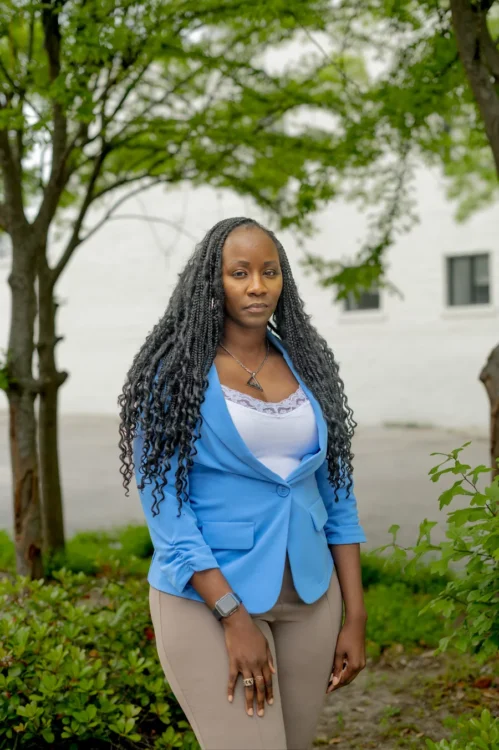In new congressional district, Black voters weigh what representation really means
Share
Explore Our Galleries
Breaking News!
Today's news and culture by Black and other reporters in the Black and mainstream media.
Ways to Support ABHM?
By Stephen Fowler, NPR

When the U.S. Supreme Court issued a ruling last year that affirmed Alabama’s congressional map discriminated against Black voters, the remedy was straightforward: Draw new boundaries that add a second district where Black voters could elect a representative of their choice.
But what does that representation actually mean?
For Shalela Dowdy, a Black Mobile-based voting rights organizer, that’s straightforward, too.
“It means a seat at the table, having individuals at the table that represent what everyone represents and not just one demographic,” she said. “Representation can include ethnicity, backgrounds, race along with gender, and when you have those different makeups, you bring along different experiences, different viewpoints.”
But more importantly than checking a certain box, representation “means that we can expect our needs and our wants to be taken into consideration when bills are being introduced and voted upon,” she added.
Dowdy is one of the plaintiffs in the lawsuit that challenged Alabama’s congressional redistricting process, and saw a special master step in to create new lines after Republicans twice refused to make maps that complied with a ruling.
[…]
After casting her ballot last month, LaTanya Stallworth said she understands the impact representation — or the lack thereof — can have.
“It means a lot to me because I feel like we need to have a voice in there,” she said. “Somebody that stands up for our district, for us, you know, that knows our struggles and what we’ve been through.”
Follow our breaking news page to see how voting is impacted this year.









Comments Are Welcome
Note: We moderate submissions in order to create a space for meaningful dialogue, a space where museum visitors – adults and youth –– can exchange informed, thoughtful, and relevant comments that add value to our exhibits.
Racial slurs, personal attacks, obscenity, profanity, and SHOUTING do not meet the above standard. Such comments are posted in the exhibit Hateful Speech. Commercial promotions, impersonations, and incoherent comments likewise fail to meet our goals, so will not be posted. Submissions longer than 120 words will be shortened.
See our full Comments Policy here.